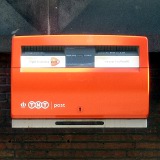 I write this while waiting for a package to be delivered by PostNL which could take a while because the strike at the package delivery division of the former Dutch state monopolist ended yesterday and the delivery people still have a backlog to contend with.
I write this while waiting for a package to be delivered by PostNL which could take a while because the strike at the package delivery division of the former Dutch state monopolist ended yesterday and the delivery people still have a backlog to contend with.
Since its privatisation PostNL seems to have dealt with a constant flow of bad press by changing its name every five years. The company started out as Koninklijke PTT (‘koninklijke’ means ‘royal’). In 1996 it became TPG Post and in 1998 the telephone and mail divisions split into two companies, the former getting the name KPN, the latter becoming TNT, Wikipedia says. TNT later became PostNL. (There are actually solid reasons for all the name changes, but those solid reasons only highlight the company being adrift.)
Nobody seems to know why the former state rail monopolist Nederlandse Spoorwegen (which is still a monopolist, just no longer legally so) messes up all the time, but at least with PostNL there seems to be a couple of reasons. The rise of the Internet appears to have killed off much of the need for mail and the liberalization of the postal market makes it so that when in the past a house was passed by one postal worker a day, now it’s several. PostNL responded to the rising cost of labour by hiring cheaper workers. They gave it a nice spin by labelling the process “[offering] jobs for people distant from the labour market“.
In 2012 PostNL decided to pay their workers for overtime; before that workers were being paid for a mythical number of hours that they should be working according to some bean counter rather than the number of hours they actually worked. In the same year Dutchnews.nl reported that the “Dutch jewellers and goldsmiths’ federation has advised its members to stop using PostNL to deliver packages because so many disappear en route to their destination”.
This week’s strike is fairly unique. PostNL is responsible for delivering about 70% of the packages, but hands those packages over to smaller one-person delivery companies. The people who strike are not employed and therefore not unionised, which means that they strike on their own dime. The largest Dutch union, FNV, decided to help out with the negotiations nevertheless, Omroep West writes. The union is also labelling the workers as ‘schijnzelfstandigen’, self-employed people that in reality work for just one customer without receiving the many benefits and protections employees have under Dutch law. RTL Nieuws reports that online stores have suffered millions in damages because of the strike.
The agreement between PostNL and its freelancers states a new rate for delivery of packages and the setting up of a grievances committee that the freelancers can use to complain about working conditions, Dutchnews.nl reports.

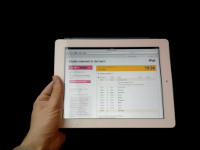 Why would you want to ask a court whether an Apple iPad is a phone or a general computer? Well, if computers given as a Christmas bonus are considered income and phones are not, you might have an incentive, especially if the back taxes amount to 323,687 euro.
Why would you want to ask a court whether an Apple iPad is a phone or a general computer? Well, if computers given as a Christmas bonus are considered income and phones are not, you might have an incentive, especially if the back taxes amount to 323,687 euro.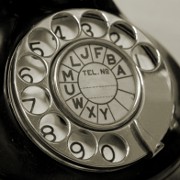 A type of crime that I had not heard of before is that Dutch teenagers are being forced by peers to buy them expensive mobile phone subscriptions. Back in February consumer watchdog show
A type of crime that I had not heard of before is that Dutch teenagers are being forced by peers to buy them expensive mobile phone subscriptions. Back in February consumer watchdog show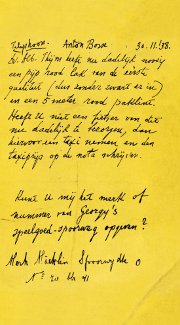 Mr Alberdingk Thijm (1864-1952) thought using the newfangled telephone was a little too banal for his taste. When he wanted to talk to someone, he wrote down what he wanted to say, and then let his personnel read out his notes over the phone.
Mr Alberdingk Thijm (1864-1952) thought using the newfangled telephone was a little too banal for his taste. When he wanted to talk to someone, he wrote down what he wanted to say, and then let his personnel read out his notes over the phone.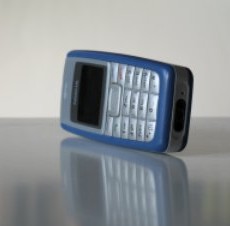 Sculptor Ton Mooy has revealed to Omroep Brabant that he is a working on a statue of an angel with a cell phone. (
Sculptor Ton Mooy has revealed to Omroep Brabant that he is a working on a statue of an angel with a cell phone. ( A thief stealing an iPhone got caught after logging into the online game Merchant,
A thief stealing an iPhone got caught after logging into the online game Merchant, 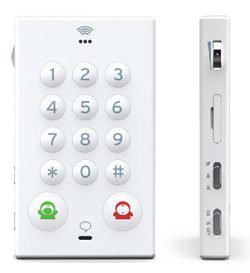 A designer ‘dumbphone’ from the Netherlands: ad agency John Doe from Amsterdam came up with this 80 euro marvel called John’s Phone, and as the price tag suggests they actually put it in production!
A designer ‘dumbphone’ from the Netherlands: ad agency John Doe from Amsterdam came up with this 80 euro marvel called John’s Phone, and as the price tag suggests they actually put it in production!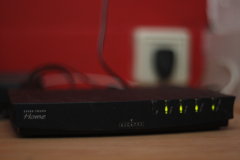 Four years ago I wrote a piece for the Teleread blog called “
Four years ago I wrote a piece for the Teleread blog called “

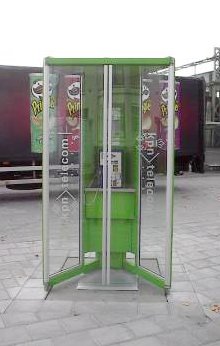 Having gotten permission from the government, KPN, the Dutch phone company, is going to reduce the number of its already less familiar green triangular phone booths,
Having gotten permission from the government, KPN, the Dutch phone company, is going to reduce the number of its already less familiar green triangular phone booths,